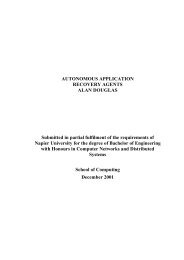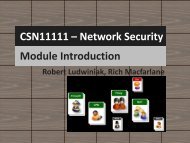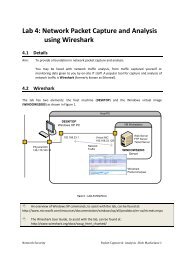Complete set: Intro to C - Bill Buchanan
Complete set: Intro to C - Bill Buchanan
Complete set: Intro to C - Bill Buchanan
Create successful ePaper yourself
Turn your PDF publications into a flip-book with our unique Google optimized e-Paper software.
2.2 Types<br />
The language C# is strongly typed. This means that a compile time error occurs if<br />
we make a type error.<br />
Some basic types are:<br />
Type Example Notes<br />
int ‐100 32‐bit<br />
char ‘x’ Uni‐code<br />
string “Andrew was here.” Strings are double quoted.<br />
Object new String(‘a’,10) Object is the most general type of object.<br />
Variables are declared by giving the type followed by the name of the variable. In<br />
these examples the variables are declared and given an initial value in the same line.<br />
Sample program fragment<br />
char c = 'x';<br />
string s = "Andrew was here.";<br />
int i = -100;<br />
double d = 3.1415;<br />
Object s = new System.IO.StreamReader("file.txt");<br />
Object h = new System.Collections.Hashtable();<br />
.<br />
2.3 Type Casting<br />
duction <strong>to</strong> .NET<br />
<strong>Intro</strong><br />
A type cast can be used <strong>to</strong> convert one type <strong>to</strong> another.<br />
The cast may be either explicit of implicit.<br />
Sample program fragment<br />
char c0 = 'A';<br />
int i0 = c0; // Implicit cast works<br />
//string s0 = c; // This fails<br />
//string s1 = (string) c; // This fails<br />
string s2 = "A" + c0; // This succeeds<br />
double d0 = i0;<br />
float f0 = (float)d0;<br />
//float f1 = d0; // This fails<br />
int i1 = (int)d0;<br />
//int i1 = d0; // This fails<br />
int i2 = (int)c0;<br />
Agilent .NET Course: C# Basics 3


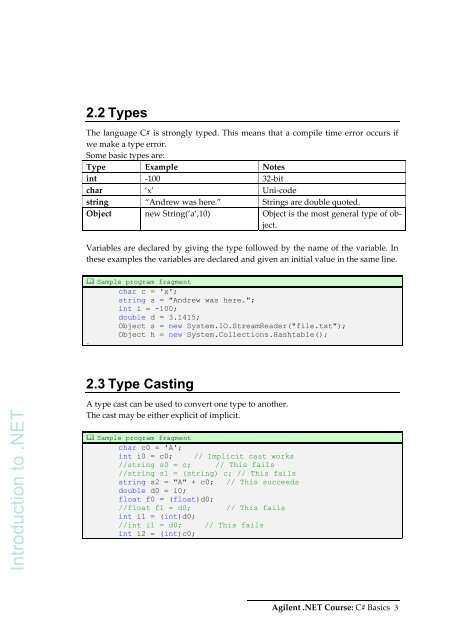
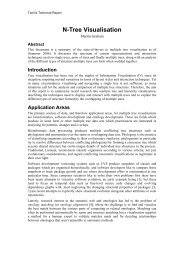
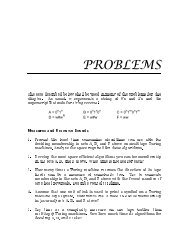
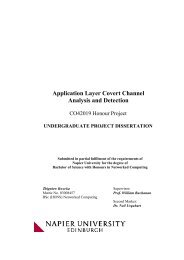




![Unit 5. Switches and VLANs [PDF]](https://img.yumpu.com/34422504/1/184x260/unit-5-switches-and-vlans-pdf.jpg?quality=85)
